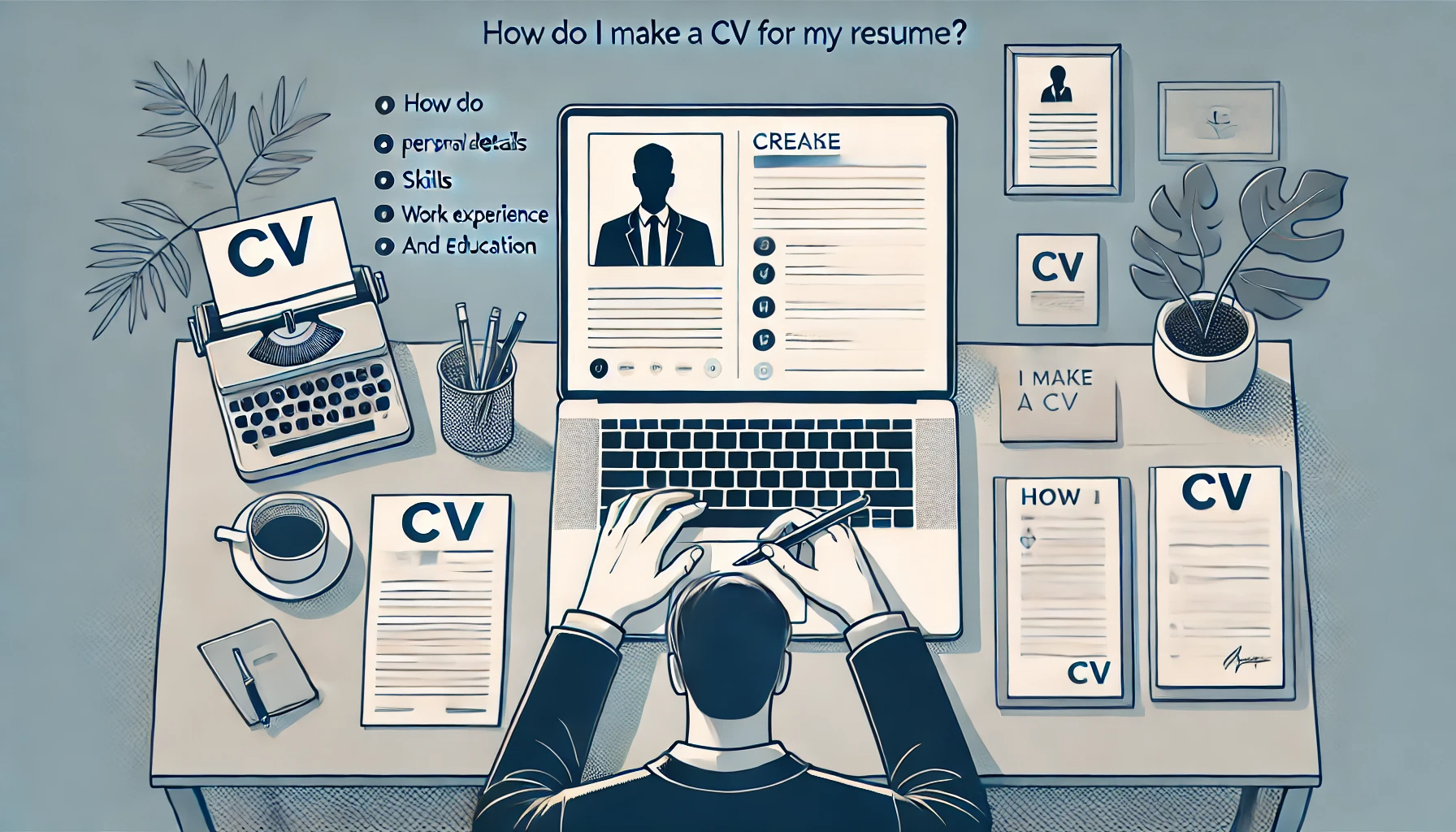How do I make a CV for my resume?
Creating a compelling CV (Curriculum Vitae) is like painting the perfect picture of your professional self. If you’ve ever wondered how to make one, you’re in the right place. Let’s break it down step by step!
Understanding the Difference Between a CV and a Resume
What is a CV?
A curriculum vitae, more commonly referred to as a CV, is a very detailed document where your background, education, experience in work, skills, and achievements are elaborated on. Often included on additional pages are publications or projects and is usually applied for either academic/research jobs or applications internationally.
Resume:
A resume is basically shorter, targeted literature with emphasis on the most relevant skills and experiences for a specific kind of position.
Key Differences Between CV and Resume
- A CV is much longer and detailed.
- A resume is concise and job-specific.
- CVs are common in academia and research; resumes are widely used in corporate job markets.
Why is a CV Important?
Importance in Different Industries
In fields such as academia, medicine, and research, your CV becomes a detailed representation of your qualification.
Valuing Your Professional Journey
Consider a CV as a timeline. It displays your growth as a professional, and therefore it is easier to see qualifications for employers.
Preparing to Write Your CV
Before You Start: Getting Organized
Collecting Information to Use
Collect all records you have regarding your education, certifications, work history, and achievements before you start.
Identifying Your Audience
Who will be reading your CV? Customise for your audience- be it a recruiter, a professor, or a hiring manager.
Choosing the Right CV Format
Popular formats include chronological (highlighting career progression), functional (skills-focused), and combination formats.
Step-by-Step Guide to Crafting a CV
Adding Personal Information
Provide your full name, contact information, and links to professional social media pages, such as LinkedIn.
Creating a Compelling Personal Statement
A brief summary of your career goals and what you can contribute.
Composing Work Experience
Include position titles, company names, and date ranges. Use bullet points to highlight the key responsibilities and achievements in the job.
Emphasizing Educational Background
List your degrees, certifications, and courses relevant to the position, beginning with your most recent experiences.
Adding Skills and Competencies
Technical and Soft Skills
Focus on technical and soft skills relevant to the post.
Listing Awards and Achievements
Accolades that make you stand out.
Including Certifications and Training
Professional training or courses relevant to your profession.
References
Optional but recommended. Include professionals that can vouch for you. Their names and contact details would suffice.
Dos and Don'ts of a Professional CV
Dos for a Standout CV
- Clean and professional in presentation
- Use of action verbs
- Quantification of achievements wherever possible.
Common Mistakes to Be Avoided
- Typos and grammatical errors.
- Do not exaggerate qualifications.
- Omit unnecessary personal details.
Tools and Templates for CV Creation
Online Resources for CV Preparation
Use mycvcreator, or Microsoft Word templates to make a visually attractive CV.
Select a Professional Template
Select a template that will serve your industry, but remains professional.
Final Preparations
Editing and Proofreading
Check for spelling errors, formatting problems, and consistency.
Tailoring Your CV to Fit the Job
Use different versions of your CV to highlight your most relevant qualifications for each position applied to.
Conclusion
Creating a CV is easier than one would imagine. By proper planning and attention to detail, you can easily prepare a document that captures your professional journey.
Frequently Asked Questions
What should I put in a CV when I have no work experience?
Try to highlight education, internships, volunteering experience, and transferable skills.
How long should my CV be?
That depends on the level of experience you have. For most professionals, usually 1-2 pages are appropriate, but for academia, it is typically longer.
Include hobbies and interests?
Only if relevant to the job or in proof of desirable traits.
Is it necessary to tailor my CV for each application?
Yes. Tailoring is what increases the chances of standing out.
What is the best format of a CV?
Choose your preferred format according to what marks you out as a suitable candidate with regards to the job requirements.









